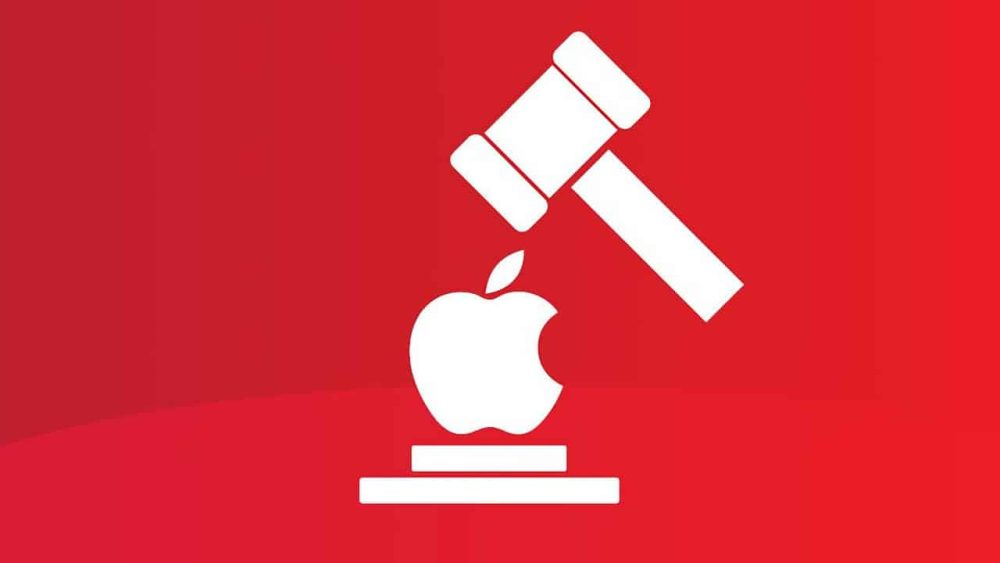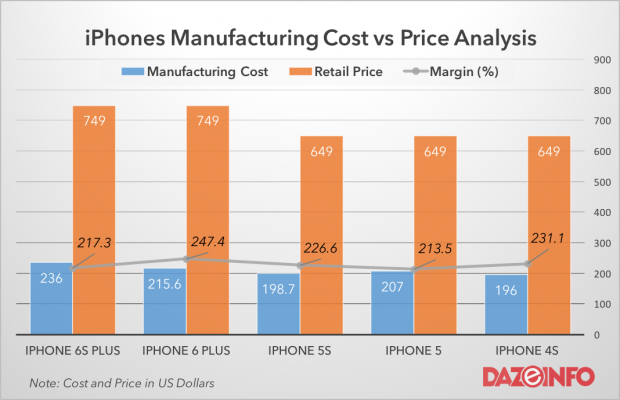The recent Apple tax fraud settlement has stirred significant attention as the tech giant agrees to pay €318 million to Italian tax authorities following a lengthy investigation. This settlement, emerging from the Apple Italy tax case, raises pertinent questions about the company’s integrity, particularly amid repeated claims by CEO Tim Cook that Apple pays every tax dollar they owe. The scrutiny intensified after allegations surfaced that Apple improperly transferred nearly $962 million of profits to Ireland, exploiting lower corporate tax rates in a bid to minimize their tax liabilities. As global conversations continue about corporate tax practices, this development not only highlights ongoing Apple legal issues but also sheds light on the disparity in corporate tax rates between countries. As the dust settles on this case, Apple’s tax statements may need to align more closely with the scrutiny of its financial practices, raising potential ripples in its corporate governance and reputation.
In light of Apple’s recent financial settlements related to tax compliance, it’s crucial to examine the broader implications of corporate fiscal responsibility. The company’s agreement to compensate the Italian government not only addresses specific legal challenges but also reflects a growing critique of multinational corporations and their tax strategies. This situation sheds light on the nuances of international tax law, particularly as it pertains to tech giants like Apple who have historically leveraged jurisdictions with favorable tax conditions. Questions surrounding their Irish tax practices and the ramifications of such decisions are now at the forefront of public discourse, potentially influencing future regulations. In essence, this tax case signifies a pivotal moment for corporate accountability in the digital age.
Overview of Apple’s Tax Fraud Settlement
Apple Inc. has recently made headlines with its agreement to pay a substantial sum of €318 million to the Italian tax authorities. This payment is a significant aspect of a long-running tax fraud investigation that spans two years, highlighting the complexities of corporate taxation in a global economy. The case has brought forth critical discussions surrounding Apple’s financial practices and the legitimacy of its tax payment claims. Apple has consistently maintained that it fulfills all its tax obligations, a statement that has come under scrutiny after this investigation’s findings.
The Italian authorities argued that between 2008 and 2013, Apple had significantly underreported its profits, transferring funds to Ireland to benefit from lower corporate tax rates. The €318 million settlement points to a realization on Apple’s part that legal skirmishes could adversely affect their reputation and operations in one of Europe’s largest markets. As Apple navigates through these legal issues, the implications of this settlement may also influence their future tax strategies internationally.
The Apple Italy Tax Case Explained
The Apple Italy tax case revolves around allegations of tax evasion where the multinational tech giant was accused of artificially shifting profits to Ireland. Prosecutor Francesco Greco uncovered that during the analyzed period, Apple only paid €30 million in Italian taxes while generating substantial income. This Sparking questions about the ethics of Apple’s accounting practices and the extent to which they contribute to the taxation of the countries in which they operate.
This case is not isolated; it mirrors a broader trend where large corporations exploit international tax laws, often leading to public backlash and subsequent legal challenges. Apple’s settlement illustrates the increasing scrutiny tech giants face regarding their tax practices, especially in jurisdictions like Italy, which may feel shortchanged by corporate tax strategies. As governments tighten regulations, companies like Apple will likely need to adapt their tax strategies to maintain compliance.
Tim Cook’s Response to Tax Claims
In the wake of the tax settlement, Apple’s CEO Tim Cook has been vocally dismissing claims that the company engages in unethical tax practices. Cook famously referred to these allegations as “total political crap”, reinforcing his stance that Apple pays every tax dollar it owes. His defense suggests a complex interplay between public sentiment and corporate accountability, showcasing the pressures faced by prominent leaders in addressing tax-related controversies.
Cook’s assertions are rooted in his belief that the U.S. tax code is outdated, particularly for companies that operate globally. He argues that the current tax system is not conducive to modern business practices and places burdens on companies like Apple, which accumulate significant revenues abroad. Cook’s strong defense underscores a crucial aspect of the ongoing debate about corporate taxation in today’s digital economy.
Corporate Tax Rates: A Global Perspective
Corporate tax rates vary drastically around the world, with developed nations often imposing higher rates. For instance, the U.S. has a corporate tax rate of up to 35%, while countries like Ireland offer a much more competitive rate of 12.5%. This disparity raises questions about fairness and equity in the global tax system, prompting many corporations to optimize their tax liabilities by relocating profits to lower-tax jurisdictions.
This phenomenon leads to significant debates within economic and political circles about how to manage corporate taxation effectively. As governments seek to clamp down on tax evasion and minimize profit-shifting practices, the focus is increasingly shifting toward international cooperation in tax matters. The Apple Italy tax case provides a clear illustration of the challenges faced by large corporations in navigating these complex global tax landscapes.
Examining Apple’s Irish Tax Practices
Apple’s practices in Ireland have drawn considerable attention over the years, primarily due to its favorable tax arrangements that benefit the company immensely. By establishing operational bases in countries with low corporate tax rates, Apple has been able to minimize its overall tax liabilities, drawing criticism from various EU nations. The strategies employed by Apple and other tech giants often lead to regulatory scrutiny, as many nations argue that these practices result in lost revenue.
Ireland’s tax environment has made it a haven for numerous multinational corporations, leading to accusations that such practices contribute to global tax inequality. As investigations like the one in Italy unfold, they shine a light on the broader implications of how companies like Apple operate within these tax frameworks. Addressing these complex issues requires coordinated international efforts to create fair and equitable tax systems that hold corporations accountable.
Impact on Apple’s Corporate Image
The ongoing tax concerns have substantial implications for Apple’s corporate image. While the company has established a reputation for innovation and consumer-oriented values, allegations of tax fraud can tarnish that image and lead to decreased consumer trust. In a marketplace where consumers are increasingly conscious of corporate ethics, such settlements could influence purchasing decisions, especially among those who prioritize ethical business practices.
Moreover, as Apple faces public scrutiny regarding its tax strategies, it may feel pressured to develop transparent practices that resonate with its customer base. Engaging in reforms and demonstrating a commitment to fair taxation could help mitigate negative perceptions, thus reinforcing its market position. Ultimately, managing this intersection of public relations and corporate governance will be pivotal for Apple moving forward.
Navigating Legal Challenges: Apple’s Strategy
Legal issues surrounding corporate tax practices are becoming increasingly prevalent, with companies like Apple needing to navigate a complex landscape of regulations. The recent €318 million settlement in Italy highlights the need for robust legal strategies tailored to address allegations of tax fraud. Apple has historically devoted significant resources to handling such controversies, leveraging legal teams and financial experts to fortify its defenses.
As countries tighten tax regulations in response to public outcry over corporate tax avoidance, Apple’s legal strategies may evolve. The company might find it beneficial to proactively engage with tax authorities to establish cooperative relationships, potentially averting future disputes. Through careful management of legal challenges, Apple can work toward sustaining its business objectives while maintaining its reputation as a responsible corporate citizen.
Future Implications for Tech Giants
The recent developments in Apple’s tax practices suggest a larger trend that may affect tech giants worldwide. As governments around the globe reevaluate their tax codes and work to curb evasion, tech companies may find themselves more frequently entangled in legal battles similar to Apple’s. The heightened scrutiny placed on corporate tax strategies indicates that tech giants need to adapt swiftly to changing regulations.
This evolving landscape may encourage companies to reassess their operational and financial strategies, ensuring compliance with both local and international tax laws. By adapting to these shifts, tech giants can position themselves as leaders in responsible taxation practices and corporate citizenship. Ultimately, navigating this landscape successfully will determine the sustainability and public acceptance of these major corporations.
Corporate Taxation in a Digital Economy
The dynamics of corporate taxation are shifting in response to the rise of the digital economy, where traditional models struggle to keep pace with modern business practices. Companies like Apple face unique challenges as they operate across multiple jurisdictions, prompting discussions about the need for updated frameworks that address digital transactions. The tax landscape is evolving, necessitating a reexamination of how profits are taxed in a globalized world.
As these discussions continue, it’s essential for tech companies to advocate for fair tax policies that reflect the realities of the digital marketplace. Engaging in dialogue with policymakers around the globe can shape future tax regulations in a way that fosters innovation while ensuring corporations contribute their fair share. The intersection of technology and tax policy remains a critical area of focus in the years to come.
Frequently Asked Questions
What was the outcome of the Apple tax fraud settlement in Italy?
Apple has agreed to pay €318 million to Italian tax authorities following a two-year investigation into alleged tax fraud. This settlement relates to accusations that Apple transferred a significant portion of its profits to Ireland, a tax haven, during the years 2008 to 2013.
How does the Apple Italy tax case relate to Tim Cook’s previous statements about corporate tax practices?
In the context of the Apple Italy tax case, CEO Tim Cook has consistently asserted that Apple pays every tax dollar owed, referring to claims of unfair accounting practices as ‘total political crap.’ Despite these assurances, the recent settlement indicates scrutiny over Apple’s tax practices, particularly regarding its operations in low-tax jurisdictions like Ireland.
What are the implications of Apple’s Irish tax practices as revealed in the tax fraud settlement?
The Apple Italy tax case highlights the implications of Apple’s Irish tax practices, where the company has been accused of transferring a substantial amount of profits to minimize its tax obligations. With Ireland’s corporate tax rate at 12.5%, compared to higher U.S. rates, this settlement raises questions about the legal and ethical dimensions of corporate tax strategies employed by multi-national corporations.
Why did Apple engage in tax practices that led to legal issues in Europe?
Apple engaged in tax practices that led to legal issues in Europe, particularly the Apple Italy tax case, due to the significant difference in corporate tax rates between the U.S. and Ireland. The strategy of shifting profits to lower-tax countries is common among tech giants, but it has resulted in regulatory scrutiny and accusations of tax fraud, as seen in this settlement.
How did Apple’s tax settlement affect their reputation regarding corporate tax payments?
The Apple tax fraud settlement has put the company’s reputation regarding corporate tax payments under further scrutiny. While Tim Cook has claimed that Apple pays more taxes than competitors, the settlement of €318 million in Italy may contradict this broader assertion, highlighting ongoing debates about transparency and corporate tax obligations.
| Key Aspect | Details |
|---|---|
| Settlement Amount | €318 million ($348 million) paid to Italian tax authorities |
| Investigation Duration | Two-year-long investigation |
| Accusation | Allegedly funneled $962 million in profits to Ireland, a tax haven |
| Period of Focus | 2008 to 2013 |
| Initial Tax Payment | Only €30 million paid in taxes during 2008-2013 |
| Apple’s CEO’s Statement | Tim Cook asserted Apple pays all taxes owed, calling fraud claims ‘political crap’ |
| U.S. Corporate Tax Rate | Can be as high as 35% |
| Irish Corporate Tax Rate | Stands at 12.5% |
Summary
The Apple tax fraud settlement marks a significant moment in the ongoing scrutiny of corporate tax practices. Apple has agreed to pay €318 million following a two-year investigation into allegations of tax avoidance by shifting profits to Ireland, a recognized tax haven. This settlement raises questions regarding the accuracy of Apple’s previous claims about its tax obligations, especially as CEO Tim Cook has publicly refuted accusations of tax fraud. The discrepancy between corporate tax rates in the U.S. and Ireland highlights the broader challenges within the global tax system that many tech giants, including Apple, navigate.








